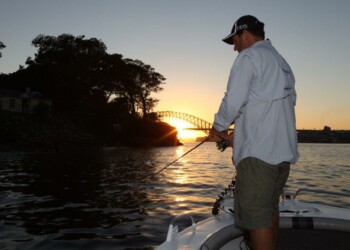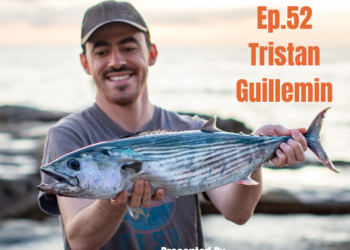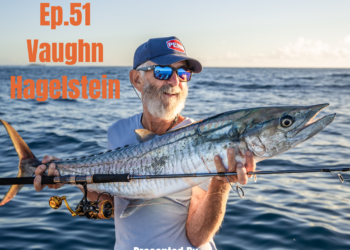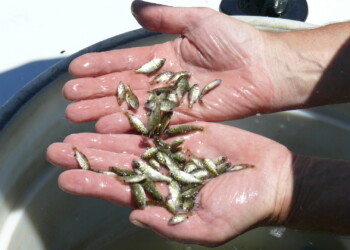
WITH British politics in turmoil over Brexit and the country hopelessly divided it’s perhaps strange to think that, amongst all the chaos, UK sea anglers look set to win both government funding and formal recognition. This follows months of intensive lobbying by the Angling Trust – the peak body for recreational fishing – on the the Fisheries Bill that is currently going through Parliament to establish a new management regime outside of EU’s Common Fisheries Policy (CFP).
While freshwater anglers in England and Wales pay a rod licence and have access to the fishery resources of the country’s Environment Agency, saltwater anglers get very little and are not even recognised as formal stakeholders in the marine fishery under the CFP. They are very much the poorer relation of the commercial sector even though recreational fishing makes a larger contribution to the nation’s economy.
Our government’s own studies show that around 800,000 UK citizens go sea angling every year for recreation and/or personal consumption. Annually their activity generates total economic activity of well over £2 billion supporting over 20,000 jobs and thousands of coastal and other businesses.
As we said in our evidence to Parliament:
“The sovereign right of the UK public to fish for publicly-owned fish stocks and the livelihoods of thousands of people supporting the multi-million-pound sea angling industry are wholly reliant on access to sustainably managed fish stocks. In some fisheries evidence suggests that recreational fishing is in fact the largest economic stakeholder generating more money and supporting more jobs per tonne of fish removed than commercial fishing.
On this basis it is critical that recreational fishing is explicitly included in the bill as a direct user stakeholder of UK sea fisheries and considered part of the catching sector. Failure to do this will only serve to repeat the failings of the Common Fisheries Policy which excludes recreational fishing from being considered as an equal and legitimate stakeholder in the management of EU fish stocks.”
It seems that for once our pollies are listening as an influential House of Commons committee has backed calls by the Angling Trust to write recreational sea angling into legislation as a recognised stakeholder in the UK’s marine fishery for the first time in history.
The Environment, Food and Rural Affairs Select Committee has just published its report on the government’s new Fisheries Bill stating:
We regard the Bill as an opportunity to acknowledge the recreational fishing sector as a stakeholder in UK sea fisheries and recognise the advantages of more joined up thinking between the recreational and commercial sectors.
Neil Parish MP, the Chair of the Environment, Food and Rural Affairs Committee, said:
“We must recognise the importance of the recreational fishing sector as a valid, valued stakeholder in UK sea fisheries and recognise the advantages of more joined up thinking between commercial and recreational industries.”
In my capacity as Head of Campaigns for the Angling Trust I got to give evidence to the committee myself and told MPs:
“Your constituents who fish recreationally will tell you that for many years they have been sick and tired of seeing their recreational sea angling experience fall off a cliff edge as stocks are overfished, and in some cases get driven into parlous conditions. They feel that the recreational sector, despite its economic significance for jobs and for coastal communities, is basically being left to feed on the crumbs that are left over after commercial exploitation has had its whack.
If you look at quality fishery management – at the American and New Zealand fishery conservation legislation – shares are allocated to both recreational and commercial sectors.” There is proper resource sharing. There is consideration in a sensible, grown-up, policy development way – recognising the social and economic impacts of the exploitation of different stocks for different purposes.”
The government too appears to be responding positively to the Angling Trust campaign, which gained strong support from Shadow Fisheries Minister Luke Pollard MP, with Fisheries Minister George Eustice promising to come back with a further amendment to the Bill to add sea angling onto the face of the Bill.
As well as long overdue formal recognition UK sea anglers have been promised a share of funding from the revised European Maritime Fisheries Fund (EMFF) which currently just supports commercial fisherman.
We have met with ministers and officials to discuss our proposed amendments to the Fisheries Bill and how our new funding scheme will work.
Personally, I’m no fan fan of Brexit but it is undeniably true that the EU’s Common Fisheries Policy has consistently failed to manage stocks sustainably and this new Fisheries Bill is a once in a generation opportunity to put this right and to usher in a new deal for sea anglers. That’s why we have been working so hard to have our voices heard in Parliament and are pleased that it looks like our efforts are paying off.



















